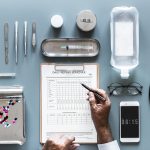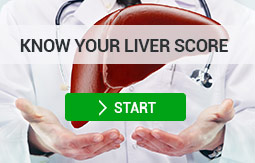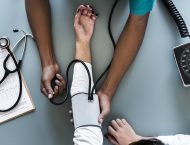What’s in this article
- What is liver disease?
- Why is it important to notice symptoms early?
- Signs and symptoms
- Diagnosis and prevention
What is liver disease?
Liver disease comes in many forms, the most common diseases being fatty liver disease, hepatitis and cirrhosis. Over 30 million people in the United States (1 in 10 Americans) have some form of liver disease and it is the 12th highest cause of death. These numbers are only on the increase as time goes on. Liver disease does not discriminate and can affect you at any age, however, it is most common among adults ages 45-65 years old. The most common causes of liver disease are chronic alcoholism, diabetes, obesity, genetic diseases, viruses, drugs and toxins, high cholesterol and autoimmune disorders.
Why is it important to notice symptoms early?
Your liver performs over 500 different functions in the body and is impossible to live without. It is very important to catch liver disease early as liver diseases can be treated, some can even be improved with the right lifestyle changes. The early signs of liver disease such as exhaustion are often mistaken for the flu, so it is important to be aware of the changes in your body and what they mean for your health.
Signs and symptoms
Liver disease does not always show symptoms, however, the following symptoms may also appear:
- abdominal swelling
- bruising
- yellowing of the skin (jaundice)
- fatigue and weakness
- loss of appetite
- nausea and or vomiting
- irritated and or itchy skin
- Fluid retention
- changes in urine color (to dark)
- Pale stool
If you experience any of the above symptoms or you think you may have damage to your liver then you should contact your doctor immediately.
Diagnosis and prevention
If liver disease runs in your family or you think you may be susceptible to liver disease, then you should go for regular check-ups with your healthcare professional. Doctors can check whether you have liver disease in several different ways such as blood tests, scans and in more serious cases, a liver biopsy. The best way to prevent developing liver disease are as follows:
- Eat a healthy and nutritious diet
- Exercise regularly
- Keep stress to a minimum
- Practice safe sex
- Control your medication
- Limit your alcohol consumption
- Avoid exposure to toxins
- Get appropriate vaccines before traveling
Find out more about the basics of liver health with Dr. Tarek Hassanein, M.D.
References
https://www.amsety.com/liver-diseases/
http://www.liverdirectory.com/liver-problems/nash-and-nafld/

 (442) 244-5115
(442) 244-5115















